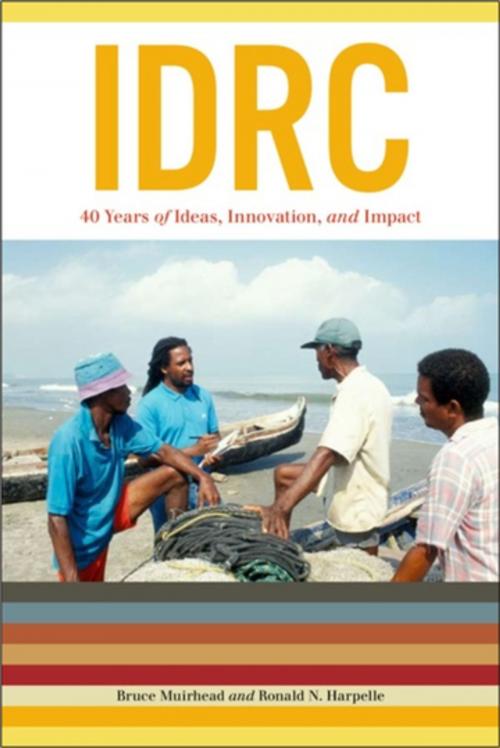IDRC
40 Years of Ideas, Innovation, and Impact
Business & Finance, Economics, Economic Development, Nonfiction, Social & Cultural Studies, Political Science, Government, Social Policy, Social Science| Author: | Bruce Muirhead, Ronald N. Harpelle | ISBN: | 9781554587575 |
| Publisher: | Wilfrid Laurier University Press | Publication: | October 4, 2010 |
| Imprint: | Wilfrid Laurier University Press | Language: | English |
| Author: | Bruce Muirhead, Ronald N. Harpelle |
| ISBN: | 9781554587575 |
| Publisher: | Wilfrid Laurier University Press |
| Publication: | October 4, 2010 |
| Imprint: | Wilfrid Laurier University Press |
| Language: | English |
The book focuses on the International Development Research Centre as a unique institution that has funded research in the developing South—research proposed and undertaken by Southern researchers—and how, as a result, it has had tremendous impact despite a relatively small budget. The IDRC is much better known in the developing South than in Canada; in many of the roughly 150 countries in which it has provided research funding it has contributed to creating a very positive image of Canada. The centre’s arms-length relationship with Canadian government assistance provides it with enormous freedom and flexibility—it was established in 1970 with its own act under the Trudeau government. The IDRC board is one-half international and one-half Canadian and is the only governmental agency in the world that has this structure, giving them unique insight into Southern development issues.
One of the IDRC’s founding principles was its insistence on having Southern researchers decide which projects would be put forward for possible funding, and much care has been taken to avoid “research imperialism” or “colonialism.” An analysis of the path less travelled, but which IDRC found amenable, is fundamental to this history of the centre, and the book highlights the decisions, ideas, and practices that flow from this basic premise.
The book focuses on the International Development Research Centre as a unique institution that has funded research in the developing South—research proposed and undertaken by Southern researchers—and how, as a result, it has had tremendous impact despite a relatively small budget. The IDRC is much better known in the developing South than in Canada; in many of the roughly 150 countries in which it has provided research funding it has contributed to creating a very positive image of Canada. The centre’s arms-length relationship with Canadian government assistance provides it with enormous freedom and flexibility—it was established in 1970 with its own act under the Trudeau government. The IDRC board is one-half international and one-half Canadian and is the only governmental agency in the world that has this structure, giving them unique insight into Southern development issues.
One of the IDRC’s founding principles was its insistence on having Southern researchers decide which projects would be put forward for possible funding, and much care has been taken to avoid “research imperialism” or “colonialism.” An analysis of the path less travelled, but which IDRC found amenable, is fundamental to this history of the centre, and the book highlights the decisions, ideas, and practices that flow from this basic premise.















